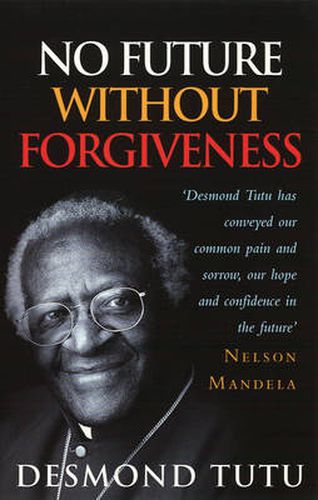Readings Newsletter
Become a Readings Member to make your shopping experience even easier.
Sign in or sign up for free!
You’re not far away from qualifying for FREE standard shipping within Australia
You’ve qualified for FREE standard shipping within Australia
The cart is loading…






This is Archbishop Desmond Tutu’s personal account of his experience as head of South Africa’s Truth and Reconciliation Commission. This Commission was a pioneering international experiment to expose many of the worst atrocities committed under apartheid, whereby those most at fault could receive an amnesty in exchange for public disclosure of the truth about their crimes. It was also an unusual attempt to rehabilitate the dignity of the victims and, as such, deeply rooted in the African concept of humanity. But this extraordinary book will be much more than the story of the Commission - it will also broaden the debate on the merits of reconciliation after conflict to the international level. Tutu will make observations based on visits to, and experience of, Northern Ireland, the Middle East, Dachau concentration camp and Rwanda - and argue that war crimes trials do not necessarily lay the basis for healing. Rather, what is needed are three key steps in a programme of reconciliation: confession and repentance; forgiveness and restitution. It is this broader canvas that will ensure the book is a major seller in many markets.
$9.00 standard shipping within Australia
FREE standard shipping within Australia for orders over $100.00
Express & International shipping calculated at checkout
This is Archbishop Desmond Tutu’s personal account of his experience as head of South Africa’s Truth and Reconciliation Commission. This Commission was a pioneering international experiment to expose many of the worst atrocities committed under apartheid, whereby those most at fault could receive an amnesty in exchange for public disclosure of the truth about their crimes. It was also an unusual attempt to rehabilitate the dignity of the victims and, as such, deeply rooted in the African concept of humanity. But this extraordinary book will be much more than the story of the Commission - it will also broaden the debate on the merits of reconciliation after conflict to the international level. Tutu will make observations based on visits to, and experience of, Northern Ireland, the Middle East, Dachau concentration camp and Rwanda - and argue that war crimes trials do not necessarily lay the basis for healing. Rather, what is needed are three key steps in a programme of reconciliation: confession and repentance; forgiveness and restitution. It is this broader canvas that will ensure the book is a major seller in many markets.